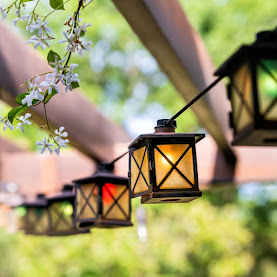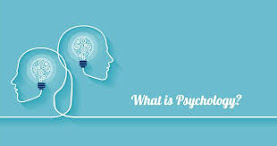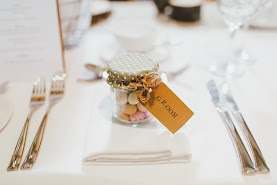If you tend not to throw things away, feeling that something emotionally binds you to them, this article is for you. Many of us accumulate items without realizing it. However, if you think about it a little more carefully and follow simple techniques, decluttering will not only become a game, but will also give your home and life a significant “breathing space”.
Just as working in a messy environment with lots of things, noise and bright artificial light has been shown to affect mood and health, living in a space that is full of things is neither functional nor enjoyable.
However, accumulating a lot of things at home is not uncommon. And it does not mean that because we do it, we all have hoarding disorder.
Many of us have the tendency to buy and not throw away, resulting in our homes being filled with useless items and not having enough storage space. In the end, we end up serving things ourselves, as we have to clean and organize them, which is mentally taxing and "robbing" us of valuable time.
Why do we do this? Why can't we throw things away? We looked at what hoarding can do to our psychology, what it can mean for each of us, and found ways to put limits on the tyranny of too many things that prevent us from having the home and freedom we deserve.
How do the things we hoard burden our psychology?
According to a study by the Center for Everyday Life of Families (CELF) at UCLA, the amount of stress we experience at home is directly proportional to the amount of things we and our family have accumulated.
Scientists found that women who feel their homes are cluttered tend to: Be less happy with their marriages.
Have higher levels of the stress hormone cortisol.
Have trouble managing daily tasks.
Feel ineffective.
Have trouble transitioning from work to home.
Become increasingly depressed.
Experience greater fatigue in the evenings.
The study also found that hoarding falls into the category of clutter and creates the same kind of stress that clutter causes. In addition, it requires more housework and repairs, which compete for our time and turn the home into a place of increased demands rather than a haven from stressors.
Why do we hoard things without realizing it?
In our materialistic society, we are exposed to advertisements all day long telling us what we must have to be healthy, beautiful, happy, and successful. This is the beginning of the bad habit of accumulating all kinds of items, from clothes and shoes to special tools and decorations.
And finally, when it comes time to decide what to keep and what to throw away, we feel emotionally unable to choose. Why can’t we get rid of the things that end up controlling our lives more than benefiting them? We
may have some kind of emotional attachment to things, or we may believe that they have some hidden monetary value, but the main reason we “hang on” to them is fear. We are afraid of losing security, prestige, comfort, and love if we throw away our things.
You see, our possessions carry our memories, our hopes, and our dreams, representing who we believe we are now and who we believe we want to be in the future. So it’s no wonder we have a hard time letting go of them. “Decluttering forces you to look at all the core beliefs and the way you live your life,” says Minneapolis-based life coach Sue Rasmussen.
The Deepest Reasons Why We Hoard
– Hope
“We hoard things because we associate them with hope,” says June Saruwatari, author of Behind the Clutter, a book that examines not only the physical things that take up space in our lives, but also the mental clutter that keeps us from feeling productive and happy. “We hope to lose weight, we hope to catch up on reading, we hope to finish an unfinished project. But when we don’t, it’s hard not to feel like a failure for it.”
Guilt
Similarly, we may feel guilty about wasting money on things, so we hold on to them to justify our purchase. But more importantly, we fear the regret we’ll feel if we later realize we needed them after all. Everyone has thrown something away, only to realize later that we shouldn’t have. But holding on to things with the excuse that we might need them one day leads mathematically to endless accumulation.
In a vicious cycle, the clutter that results from a response to feelings of emptiness, fear, guilt, and anxiety can cause us to hoard more and cause more guilt and shame, feelings that can ultimately lead to intense anxiety.
– Self-esteem
According to a 2011 study published in the Journal of Consumer Psychology, the things we have a hard time getting rid of are likely linked to our self-esteem.
Usually, what we hold onto most represents what defines our worth. For example, if we place a high value on success, it is difficult to throw away symbols or evidence of our achievements, such as medals or certificates of knowledge.
The study found that parting with our possessions that make us feel worthy can even cause us feelings of grief.
– The need for love
If we put human relationships above all else, we find it harder to throw away gifts from our loved ones. We may feel ungrateful towards the giver. Or we may feel that they do not love us in the same way if we eliminate evidence of others' love, birthday cards and letters from friends and partners.
What (could) clutter in any space mean?
“In addition to what we accumulate, the spaces we choose to clutter represent different emotional events,” says clinical psychologist Noah Mankowski. According to Mankowski, clutter in the attic or basement can indicate an inability to “let go” of the past.
Another example: A messy bathroom can reveal body image issues, as we are more likely to stand in front of a mirror naked there.
Clutter in the living room can indicate difficulties in social life, while a messy bedroom can be related to issues related to our sexual behavior, fear of intimacy or gender roles.
Are you avoiding pain?
“When we fill ourselves with things, we can’t see the environment. Which actually allows us not to deal with it. It’s also a way of... coping,” says the expert.
Thus, clutter can systematically distract us from dealing with deeper issues and act as an escape from pain.
If clutter is related to our emotions, then decluttering is not just about tidying up our desk or closet. It is about releasing all the things that hold us captive to the past: past careers, relationships, and unfinished business. Will you dare?
Practical tips for daring to declutter
Decluttering and decluttering is difficult to do at the end of a tiring day or on the last working day of the week. Choose a day, like Sunday.
Approach decluttering with an attitude of gratitude. Let us be grateful that we can give others our unused possessions – it benefits not only us, but also others who need them.
Take a photo of what you think you’ll miss. In a series of studies, researchers found that people experienced less loss from giving away a beloved item if they took a photo of it. This strategy can also be applied to helping children throw away books, crafts, toys, and drawings.
Think differently
On a deeper, psychological level, you might find the following thoughts helpful: Set limits on storing family heirlooms. Keeping your beloved aunt’s china set may be sentimental, but it becomes a burden if it’s not going to be used and you don’t really want it.
Let go of the past. It’s okay to be nostalgic, but holding on to your child’s first pair of baby jeans is an unhelpful reminder of the past and can subconsciously prevent you from moving forward in your life.
Show confidence in the future. If we keep unused things “just in case,” are we not trusting the future and how we can deal with it?
Get over the imperfect. Unfinished projects can indicate an unsustainable perfectionism, causing a sense of failure. We don’t need to perfect everything in this life. We can accept that we are worth it just the way we are.
The more we declutter, the better we become at it and the more consciously we choose what to keep. A little empty space helps create space for a new way of life that allows for a calm mind and strong relationships. Think of it this way: Getting rid of clutter is an important form of self-care.




















.jpeg)


0 Comments